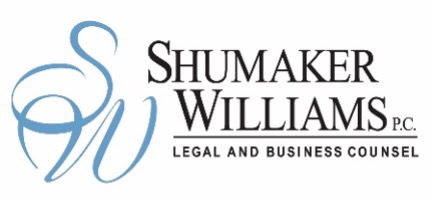By Paul A. Adams, Esq.
General Counsel to the PACB

The United State government has always had a schizophrenic approach to the conflicting goals of privacy and national security/criminal prosecutions. Federal regulation of financial institutions has balanced these goals to set the appropriate balance for the burden of financial institution collection of data and making that data available to the federal government.
In 1970 with the passage of the Bank Secrecy Act (BSA), Congress imposed “Know Your Customer” requirements to collect certain information about your customer and to report suspected crimes by filing Suspicious Activity Reports and Currency Transactions Reports to prevent money laundering and other financial crimes. The United States Supreme Court in 1976 found that bank customers had no constitutional right to privacy for bank account information. Congress responded by passing the Right to Financial Privacy in 1978 which set due process procedural requirements for the federal government obtaining account information. The Money Laundering Control Act of 1986 criminalizes money laundering.
The fall of the twin towers on 9/11 was the first big push to reset that balancing of interests that led to the USA Patriot Act of 2001 which passed 45 days after the towers fell. The Patriot Act of 2001 amended the Money Laundering Control Act of 1986 and the Bank Secrecy Act of 1970. This was the basis of the current requirements for formal anti-money laundering programs and verification of your customers identifications.
The Anti-Money Laundering Act of 2020 is the next step in resetting that balance. While providing for new whistleblower procedures and enhanced penalties for Anti Money Laundering and BSA violations, the most consequential provision for financial institutions is the new requirement to report beneficial ownership of your customers. This law will require financial institutions to collect and forward information to FinCEN about the beneficial ownership of a borrower unless the borrower qualifies for an exemption. FinCEN has finalized the first of three proposed regulations. The first final rule which is effective January1, 2024 requires financial institutions to identify beneficial ownership of borrowers who are corporations, limited liability companies and similar organizations report any individual who (1) exercises substantial control of the reporting company or (2) controls at least a 25% ownership interest. The applicable exclusions are borrowers that (1) file reports with the SEC under Section12 or 15(d) of the Exchange Act or (2) are a business that employs more than 20 employees on a full time basis, filed income tax returns with more than $5 million in gross receipts or sales and have a physical office the US.
Part of the reason for the passage of the 2020 Act was the use of offshore entities designed to avoid disclosure of ownership such as those revealed in the Panama Papers. The burden for most of you will be the gathering and reporting this beneficial ownership data on your small business borrowers’ owners who have nothing to do with offshore activities.
No information contained in this article should be construed as legal advice from Shumaker Williams P.C. or the individual author, nor is it intended to be a substitute for legal counsel on any subject matter. This article is current as of the date of original publication.





